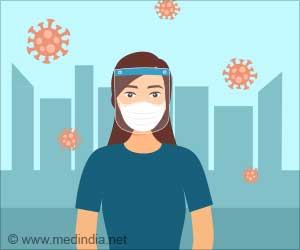- Weight loss supplements can cause severe health issues, including liver damage and heart problems
- Excessive caffeine from supplements can lead to heart palpitations, anxiety, and even cardiac arrest
- High doses of vitamins and minerals like Vitamin E and calcium can increase the risk of serious conditions like stroke and heart disease
Supplements can cause headaches, allergic reactions, and stomach problems. Overuse of some vitamins and minerals can lead to toxicity (1). To avoid harmful effects, consult with a healthcare provider before beginning any supplement regimen.
’
Advertisement
Common Myth About Health Supplements
Many people take supplements in the hopes that these tiny pills and powders will help them on their journey to better health and fitness. However, not all supplements are created equal, and some may be more harmful than helpful. Supplements can help fill nutritional gaps, but there are certain health hazards to be aware of.
Advertisement
Top 5 Health Supplements That Can Lead to Side-Effects
Here are five popular supplements that may be causing more harm than good to your health:
Weight Reduction Supplements
Weight reduction supplements promise quick and easy results, but they frequently come with serious negative effects (2). Many of these products contain a combination of herbs and stimulants, which might cause serious health complications. For example, ephedra-containing products were formerly popular, but the US FDA prohibited them due to ties to heart attacks, strokes, and even death (3). A study published in the journal Hepatology indicated that weight loss pills increased the chance of severe liver damage (4). Green tea extract, for example, can be hazardous to the liver if consumed in significant quantities (5). Some weight reduction tablets contain undeclared components, which can result in unanticipated reactions and consequences.
Caffeine Supplements
Caffeine pills are commonly used to boost energy levels and improve sports performance (6). While a cup of coffee is usually safe, caffeine supplements can lead to overconsumption. Caffeine in large quantities can produce jitteriness, anxiety, heart palpitations, and, in severe cases, cardiac collapse. Consuming too much coffee can cause atrial fibrillation, a kind of irregular heartbeat that increases the risk of stroke and heart failure (7). Overuse of caffeine pills can also result in dependency and withdrawal symptoms, such as headaches and exhaustion.
Calcium Supplements
Calcium is necessary for good bones, but taking too much of it in supplement form might be dangerous. Excess calcium intake has been related to a higher risk of heart disease. A study published in the Nutrients indicated that using calcium supplements increased the chance of plaque development in the arteries, which can lead to heart attacks (8). High calcium intake (more than 800 mg to 1,200 mg per day) can result in kidney stones (9). According to the National Institutes of Health (NIH), most people prefer to acquire calcium from food rather than supplements since the body absorbs it better and there are fewer health hazards involved.
Vitamin E Supplements
Vitamin E is well known for its antioxidant capabilities, which protect cells from free radical damage (10). High doses of vitamin E supplementation (up to 1,000 mg per day is considered normal) can cause more harm than good. Excessive Vitamin E intake has been related to an increased risk of hemorrhagic stroke, which is characterized by brain hemorrhage (11). A study found that males who took high-dose Vitamin E supplements had a greater risk of developing prostate cancer (12). The study concludes that, while moderate Vitamin E intake from food sources is good, high-dose supplementation is dangerous.
Vitamin A Supplements
Beta-carotene, a precursor of Vitamin A, is an antioxidant found in many colorful fruits and vegetables. Beta-carotene supplements, while helpful when ingested in food, might pose considerable hazards, particularly for smokers. According to studies, using high quantities of beta-carotene supplements (the average dose is between 6 and 15 milligrams) can raise the risk of lung cancer among smokers and asbestos workers (13). This is in stark contrast to the positive effects of beta-carotene when eaten in its native form via diet.
Advertisement
Facts About Health Supplements
Supplements can help, but they are not necessarily necessary for everyone. A well-balanced diet high in fruits, vegetables, whole grains, lean meats, and healthy fats offers the majority of the nutrients your body need. However, certain people may benefit from supplements. For example, those with certain dietary restrictions, medical issues, or deficits may require supplementary vitamins and minerals that are difficult to receive through food alone. Pregnant women, the elderly, and people who have had little sun exposure frequently require supplements such as folic acid, vitamin D, and calcium. While supplements can assist fill nutritional gaps, they should be used in conjunction with a healthy diet rather than as a substitute.
Consulting a doctor before taking any supplement is critical for a variety of reasons. First, a healthcare expert can evaluate your health state, including any existing medical conditions or drugs you may be taking, to determine whether the supplement is safe and appropriate for you. Certain supplements may interfere with drugs or exacerbate underlying health concerns, so seeking professional advice helps to reduce such dangers. A doctor can make individualized suggestions based on your specific needs and goals, ensuring that the supplement fits within your overall health plan. Professional counsel can help you understand the large array of supplements available, directing you to evidence-based ones that are more likely to be successful.
Vitamins obtained from vegetables are generally helpful and serve an important part in overall health. However, in other cases, they may offer dangers. Overconsumption of certain vitamins, particularly from supplements rather than entire foods, can result in hypervitaminosis, a disorder caused by excessive vitamin intake. For example, an overabundance of fat-soluble vitamins A, D, E, and K can build up in the body and produce toxicity (14). Individuals with specific health conditions or those taking certain drugs may develop harmful reactions to large amounts of some vitamins.
References:
- Adverse Effects of Nutraceuticals and Dietary Supplements
Ronis MJJ, Pedersen KB, Watt J. Adverse Effects of Nutraceuticals and Dietary Supplements. Annu Rev Pharmacol Toxicol. 2018 Jan 6;58:583-601. doi: 10.1146/annurev-pharmtox-010617-052844. Epub 2017 Oct 6. PMID: 28992429; PMCID: PMC6380172. - Dietary Supplements for Weight Management: A Narrative Review of Safety and Metabolic Health Benefits
Kahn RS, Sommer IE, Murray RM, Meyer-Lindenberg A, Weinberger DR, Mah E, Chen O, Liska DJ, Blumberg JB. Dietary Supplements for Weight Management: A Narrative Review of Safety and Metabolic Health Benefits. Nutrients. 2022 Apr 24;14(9):1787. doi: 10.3390/nu14091787. PMID: 35565754; PMCID: PMC9099655. - Ephedra ban: no shortage of reasons
Rados C. Ephedra ban: no shortage of reasons. FDA Consum. 2004 Mar-Apr;38(2):6-7. PMID: 15101356. - Liver injury from herbal and dietary supplements
Navarro VJ, Khan I, Björnsson E, Seeff LB, Serrano J, Hoofnagle JH. Liver injury from herbal and dietary supplements. Hepatology. 2017 Jan;65(1):363-373. doi: 10.1002/hep.28813. Epub 2016 Nov 17. PMID: 27677775; PMCID: PMC5502701. - Green tea extract: a potential cause of acute liver failure
Patel SS, Beer S, Kearney DL, Phillips G, Carter BA. Green tea extract: a potential cause of acute liver failure. World J Gastroenterol. 2013 Aug 21;19(31):5174-7. doi: 10.3748/wjg.v19.i31.5174. PMID: 23964154; PMCID: PMC3746392. - Caffeine: cognitive and physical performance enhancer or psychoactive drug?
Cappelletti S, Piacentino D, Sani G, Aromatario M. Caffeine: cognitive and physical performance enhancer or psychoactive drug? Curr Neuropharmacol. 2015 Jan;13(1):71-88. doi: 10.2174/1570159X13666141210215655. Erratum in: Curr Neuropharmacol. 2015;13(4):554. Daria, Piacentino [corrected to Piacentino, Daria]. PMID: 26074744; PMCID: PMC4462044. - Coffee, caffeine, and risk of hospitalization for arrhythmias
Klatsky AL, Hasan AS, Armstrong MA, Udaltsova N, Morton C. Coffee, caffeine, and risk of hospitalization for arrhythmias. Perm J. 2011 Summer;15(3):19-25. doi: 10.7812/TPP/11-020. PMID: 22058665; PMCID: PMC3200095. - Calcium Supplements and Risk of Cardiovascular Disease: A Meta-Analysis of Clinical Trials
Myung SK, Kim HB, Lee YJ, Choi YJ, Oh SW. Calcium Supplements and Risk of Cardiovascular Disease: A Meta-Analysis of Clinical Trials. Nutrients. 2021 Jan 26;13(2):368. doi: 10.3390/nu13020368. PMID: 33530332; PMCID: PMC7910980. - Calcium intake and urinary stone disease
Sorensen MD. Calcium intake and urinary stone disease. Transl Androl Urol. 2014 Sep;3(3):235-40. doi: 10.3978/j.issn.2223-4683.2014.06.05. PMID: 26816771; PMCID: PMC4708574. - Vitamin E
Böhm V. Vitamin E. Antioxidants (Basel). 2018 Mar 20;7(3):44. doi: 10.3390/antiox7030044. PMID: 29558411; PMCID: PMC5874530. - Effects of vitamin E on stroke subtypes: meta-analysis of randomised controlled trials
Schürks M, Glynn RJ, Rist PM, Tzourio C, Kurth T. Effects of vitamin E on stroke subtypes: meta-analysis of randomised controlled trials. BMJ. 2010 Nov 4;341:c5702. doi: 10.1136/bmj.c5702. PMID: 21051774; PMCID: PMC2974412. - Vitamin E and the risk of prostate cancer: the Selenium and Vitamin E Cancer Prevention Trial (SELECT)
Klein EA, Thompson IM Jr, Tangen CM, Crowley JJ, Lucia MS, Goodman PJ, Minasian LM, Ford LG, Parnes HL, Gaziano JM, Karp DD, Lieber MM, Walther PJ, Klotz L, Parsons JK, Chin JL, Darke AK, Lippman SM, Goodman GE, Meyskens FL Jr, Baker LH. Vitamin E and the risk of prostate cancer: the Selenium and Vitamin E Cancer Prevention Trial (SELECT). JAMA. 2011 Oct 12;306(14):1549-56. doi: 10.1001/jama.2011.1437. PMID: 21990298; PMCID: PMC4169010. - β-Carotene Supplementation and Lung Cancer Incidence in the Alpha-Tocopherol, Beta-Carotene Cancer Prevention Study: The Role of Tar and Nicotine
Middha P, Weinstein SJ, Männistö S, Albanes D, Mondul AM. β-Carotene Supplementation and Lung Cancer Incidence in the Alpha-Tocopherol, Beta-Carotene Cancer Prevention Study: The Role of Tar and Nicotine. Nicotine Tob Res. 2019 Jul 17;21(8):1045-1050. doi: 10.1093/ntr/nty115. PMID: 29889248; PMCID: PMC6636175. - Fat Soluble Vitamins
National Research Council (US) Committee on Diet and Health. Diet and Health: Implications for Reducing Chronic Disease Risk. Washington (DC): National Academies Press (US); 1989. 11, Fat-Soluble Vitamins. Available from: https://www.ncbi.nlm.nih.gov/books/NBK218749/
Source-Medindia



